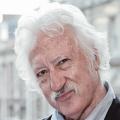THE story so far – I have been diagnosed with leukaemia and told I have between nine and 15 months to live.
Deadlines like that mean you have nothing to lose, so why not try alternative treatments?
Can cannabis help control cancer?
That is the question posed to me by an ardent but anonymous fan who reads this column.
My number one fan has sent several medical articles arguing that pot can kill leukaemia cells.
Since cannabis is an illegal drug it is difficult to carry out experiments with it and get hard medical evidence.
I have interviewed one Oxfordshire woman who swears it has helped her during chemotherapy, especially with the nausea that is provoked by the treatment.
She says cannabis helps her to walk, talk and taste food.
Anecdotal evidence like this may not be convincing because anyone can make up a cannabis story.
There are some very powerful people in the medical profession who have studied the effects of cannabis and argue that it should be legal for medicinal purposes.
Among these people is David Knott, formerly the chief scientific adviser to the Government.
Some would go further and argue that cannabis should be legalised for recreational use, or harm reduction.
This would stop the drugs money going to criminals who run drug cartels and it would provide safer drugs because cannabis could be tested and approved so that too pure, or adulterated drugs, would not be available on the street.
But let's stick with cannabis for medicinal use.
There is a Catch 22 situation here. It can't be tested because it is illegal but it may be helpful, so what would you do if an anonymous fan offered to bake you two dozen hash brownies, so you wouldn't have to smoke it, just lazily munch some of the weed?
That's what my number one fan is offering. This person has thought it out. They must remain anonymous and we can have no direct contact.
So he or she will drop off the cannabis in a tin at a secret location behind a stone in the porch of a CofE church.
I checked out the views on this with my cancer consultant and the consultant suggested that taking cannabis, as far as he knows, will nor retard or interfere with the current drugs I am taking.
Now before avid parishioners in Oxford start to get out their metal detectors and begin to comb around churchyards inch by inch please note I have rejected the offer of a regular supply of cannabis brownies, at least for the time being.
But this does bring up a deeper drugs story in my fight against leukaemia.
Several months ago, before I had a diagnosis I had a scratchy skin condition that doctors later suggested was probably related to my cancer.
My GP prescribed a regular supply of creams to combat the condition.
These drugs have all been tested and licensed by the Government and come with a list of side effects.
One of the creams, which is widely used for a variety of skin problems, has a very short list of side effects and does not flag up any dangerous associations.
I have been slapping it on all over my body for a year because the directions say 'apply two to four times daily' and use as a soap substitute.
However, there are one or two problems with this cream. If you use it regularly layers and deposits of it can build up on the skin.
If you don't take a shower for two or three days this can result in a big residue.
Also, if you put it on before dressing or going to bed, your clothes and bedclothes could retain some of the cream and after a while become soaked in it.
This is when the little problem with this medically tested and licensed drug came to light, a very big light.
The problem with the cream I was using is that some of the paraffin ingredients could ignite if a flame or very hot object came in contact with it.
One man with a skin condition used it just before he went outside to light a cigarette.
He went up in flames like a torch, and with over 80 per cent burns to his body he died.
In recent years five people have died as a result of burns after using the cream.
This is a tale of two medicines.
One is cannabis, that could in certain circumstances be helpful to the human body, and which is illegal and therefore cannot be used in experiments to prove whether or not it is beneficial in treating cancer.
The second drug is legal and has had all the tests enabling me to use it with my cancer but it burned five people alive.
It is not easy being a patient because all drugs have side effects.
But if patients are to be denied the use of cannabis the regulators have some hard questions to answer about the balance of harm and help.
Maybe that's why I have not entirely ruled out finding a tin of cannabis brownies in some pot of gold hidden in a church porch.






Comments: Our rules
We want our comments to be a lively and valuable part of our community - a place where readers can debate and engage with the most important local issues. The ability to comment on our stories is a privilege, not a right, however, and that privilege may be withdrawn if it is abused or misused.
Please report any comments that break our rules.
Read the rules hereLast Updated:
Report this comment Cancel